Computer ethics is the set of commonly agreed principles that govern the use of computers. Like ethics more generally, computer ethics is essentially a set of philosophical guidelines or moral standards that aim to influence behaviour and prevent harm.
While computer ethics work to ward off technology misuse by computer scientists, programmers, and other decision-making individuals within the field, they can also help to steer social conduct and user interactions when using computer systems – particularly where the internet is concerned.
The history of computer ethics
Computer ethics first rose to prominence during the Second World War, when MIT professor Norbert Wiener predicted significant social and ethical consequences to the cybernetics technology he was helping to develop.
In 1950, Wiener published The Human Use of Human Beings, which considered for the first time a series of ethical issues, questions, and topics within computer science – and by 1973, the Association for Computing Machinery (ACM) had adopted its first code of ethics.
However, it wasn’t until 1976 that Walter Maner, a professor at Bowling Green State University, coined the term ‘computer ethics’ for this separate branch of applied ethics. Maner went on to champion the field, and inspired philosopher Terrell Ward Bynum, editor of the Metaphilosophy academic journal, to launch an essay competition about computer ethics – the results of which were printed in 1985, in a special edition of the journal called Computers and Ethics. The winner of the competition was entitled What Is Computer Ethics? Written by James Moor, it states that computer ethics includes the:
- Identification of computer-generated policy vacuums.
- Clarification of what Moor called ‘conceptual muddles’.
- Formulation of policies for the use of computer technology.
- Ethical justification of policies.
A second important milestone in 1985 was the publication of Computer Ethics by Deborah Johnson, an applied ethics professor at the University of Virginia. Computer Ethics was quickly established as a standard-setting textbook in the field, and set the research agenda in computer ethics for the next decade.
More recently, and particularly following the rise of the internet, ethical theories and debates about computer ethics have shifted significantly – but while some have predicted that computer ethics will one day replace ethics altogether, many philosophers disagree. Johnson, for example, believes that computers don’t create new ethical problems. Instead, she has stated that they “pose new versions of standard moral problems and moral dilemmas, exacerbating the old problems, and forcing us to apply ordinary moral norms in uncharted realms.” Herman Tavani, a professor in philosophy and co-director of the International Society for Ethics and Information Technology, appears to agree with Johnson. In his textbook Ethics and Technology, he analyses modern controversies created by emerging technologies from the perspective of traditional ethical concepts and theories.
Computer ethics: common concerns and considerations
There are a number of ethical concerns that have arisen within computing and information technology (IT), particularly following the rise of the internet, social media, artificial intelligence and advanced machine learning algorithms.
Computer crime
Cybercrime is a threat that evolves as rapidly as new technology does. Through hacking, malware, viruses, worms, phishing, Trojan horses, and so on, cybercriminals and hackers can steal money and data, commit fraud, traffic in illegal content and intellectual property, and commit identity theft.
Privacy and security
Digital security, anonymity, information ethics, and information privacy online can be hugely important to people. However, threats abound, from companies secretly tracking – and selling – online activity, to individual people cyberbullying and doxing other people.
Intellectual property
Theft or the unauthorised distribution of digital content, copyrighted content, and intellectual property is an ongoing issue online, with everything from art and entertainment media to software and innovative products shared illegally online.
Computer ethics in practice
While most people have their own personal set of ethics that guide them, it’s likely they’re also subject to computer policies or a code of ethics when using certain systems or software, or while at work. They may also be members of more formal organisations, such as trade bodies, that have their own frameworks and codes of conduct for professional ethics and professional conduct.
BCS, the Chartered Institute for IT, created its BCS Code of Conduct to safeguard its professional standards as well as the integrity of its members and other IT and computer professionals.
It includes four key ethical principles:
- You make IT for everyone. IT professionals work in the public interest, with due regard paid to privacy, security, public health, and the wellbeing of others and the environment.
- Show what you know, learn what you don’t. IT professionals should only take on tasks that they have the competencies, skills, and resources to complete.
- Respect the organisation or individual you work for. IT professionals should always act in the best interest of their client or company, and maintain discretion and ethical standards.
- Keep IT real. Keep IT professional. Pass IT on. IT professionals should always act with integrity, and support colleagues in their personal and professional growth.
The Ten Commandments of Computer Ethics
Another popular example of computer ethics in practice are the Ten Commandments of Computer Ethics, created in 1992 by the Computer Ethics Institute.
The commandments include:
- Thou shalt not use a computer to harm other people.
- Thou shalt not interfere with other people’s computer work.
- Thou shalt not snoop around in other people’s computer files.
- Thou shalt not use a computer to steal.
- Thou shalt not use a computer to bear false witness.
- Thou shalt not copy or use proprietary software for which you have not paid (without permission).
- Thou shalt not use other people’s computer resources without authorisation or proper compensation.
- Thou shalt not appropriate other people’s intellectual output.
- Thou shalt think about the social consequences of the program you are writing or the system you are designing.
- Thou shalt always use a computer in ways that ensure consideration and respect for other humans.
Embed computer ethics in your career
You can gain a valuable computer science degree that embeds legal, ethical, and professional considerations throughout all of its modules by studying the 100% online MSc Computer Science at North Wales Management School.
In addition to issues of computer ethics, you’ll also learn about systems and software engineering, computer security, and programming languages such as HTML, JavaScript, PHP, and MySQL.
This flexible master’s degree is suitable for those with and without a computer science background, and is taught 100% online, so you can study around your current professional and personal commitments and earn while you learn.




